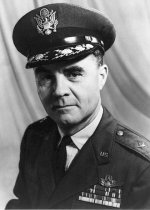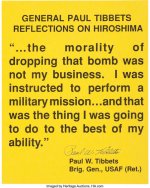74 years ago today, the second atomic bomb ever used in warfare was dropped on Nagasaki.
The first atomic bomb had fallen on Hiroshima on 06, August, 1945.
Nagasaki wasn't even the intended target for the second bomb.
Kokura was the target but was obscured by clouds and the secondary target, Nagasaki, was hit instead.
In a bit of irony, the ship that carried the main components for the atomic bombs, the USS Indianapolis did not make it home either. She was torpedoed and sunk by a Japanese submarine after dropping off the parts for the bombs.
Those two bombs were the only two nuclear weapons used in warfare.
Hopefully those will be the only ones ever to be used against humans.
Take a moment to think about all the effects of those two bombs even today.
- Ivan.
The first atomic bomb had fallen on Hiroshima on 06, August, 1945.
Nagasaki wasn't even the intended target for the second bomb.
Kokura was the target but was obscured by clouds and the secondary target, Nagasaki, was hit instead.
In a bit of irony, the ship that carried the main components for the atomic bombs, the USS Indianapolis did not make it home either. She was torpedoed and sunk by a Japanese submarine after dropping off the parts for the bombs.
Those two bombs were the only two nuclear weapons used in warfare.
Hopefully those will be the only ones ever to be used against humans.
Take a moment to think about all the effects of those two bombs even today.
- Ivan.



